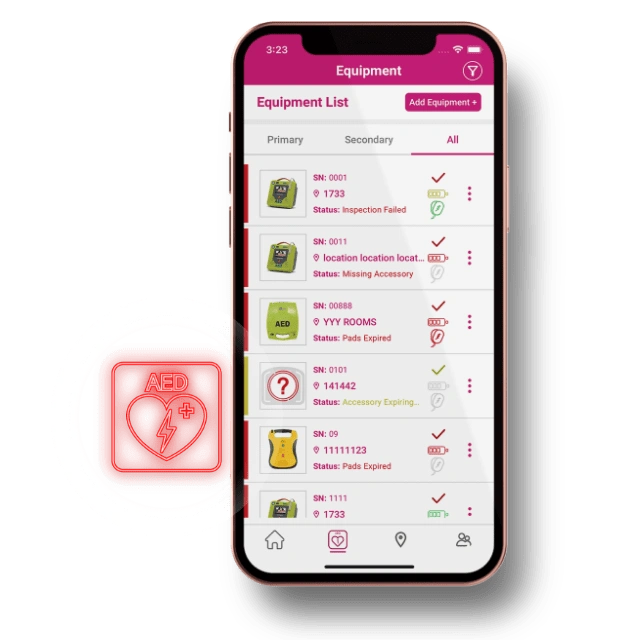DevOps Solutions & Services
Amplework provides DevOps solutions and services that optimize software delivery, including continuous integration and delivery, infrastructure automation, monitoring, cloud migration, and Security Compliances.
Assessment & Strategy Development
We assess IT infrastructure & application lifecycle, evaluate DevOps services, & create a customized plan for optimization.

Cloud and Application Management
Our DevOps experts help you integrate DevOps strategy with cloud technology to increase efficiency & faster application deployment.

Continuous Integration and Testing
We streamline integration and ensure high-quality results through continuous automated testing.

DevOps Managed Services
Benefit from our experienced DevOps development team to meet all your implementation needs.

End-to-End DevOps Implementation
Our tailored approach to DevOps implementation ensures seamless integration into your workflow.

DevOps Consulting Services
Get expert guidance on DevOps tools and practices with our top-notch consulting services.
DevOps Benefits
Why choose between speed and quality when you can have both? DevOps is like the sports car of software development that is fast, efficient and satisfying to drive. So, implement DevOps & engage these benefits into your business:
Accelerators and Frameworks
We have an outstanding experience in helping our clients in adopting DevOps solutions and make the best out of their tremendous benefits in order to drive their businesses and enjoy accelerated delivery of software. We use the following tools to achieve this feat:
Platform for DevOps tool
Provision of solutions which are right for the opted infrastructure and solutions.
Cloud Automation Manager
Workloads located at different clouds can be organized securely and in a high speed through the use of a unified interface.
Test Automation Manager
Tests on performance, security and functions can be done quickly and in a convenient way.
The Project Flow in DevOps Involves the Following Steps
DevOps Tools Chain
A technology stack is important in DevOps and refers to the combination of tools and technologies used to deliver software products. DevOps technology stack includes:
Industries that we serve
Amplework has been recognized as one the leading mobile app development companies that provides solutions to the following industries:
Health & Fitness
Shopping & E-Commerce
Education
Sports & Recreation
Banking & Finance
Travel & Tourism
Media & Entertainment

Fintech

Marketplace

Fashion

Rental

Agriculture
Let’s See What Our Client Say’s About Us
Frequently Asked Questions

Trusted DevOps Solutions and Services Company
Amplework empowers startups, SMEs, agencies as well as all business entities to develop and deploy reliable, scalable software/websites with our end-to-end DevOps solutions & services.
We're a transparent DevOps company that uses agile methodology for collaborative work-in-progress reviews.
DevOps helps businesses to deliver software faster and with higher quality, reducing the time to market and increasing competitiveness. It also helps to improve collaboration between teams and increase efficiency.
The key elements of DevOps include continuous integration, continuous delivery, continuous testing, infrastructure as code, and continuous monitoring and feedback.
DevOps services include consulting, implementation, testing, deployment, and ongoing maintenance and support.
The benefits of DevOps for businesses include faster time to market, reduced costs, improved collaboration between teams, increased efficiency, and higher software quality.
Devops development services can benefit any organization that wants to accelerate software delivery and improve the overall software development process.
With a decade of experience and expertise as a devops development company, our approach is focused on truly understanding your specific needs and delivering results that exceed expectations. Our strengths include:
- A team of talented and certified professionals
- Adherence to industry-leading security standards
- A commitment to fast product releases and market time-to-market
- 24/7 support services
- Streamlines Supply Chain Functions
- Easier Team Reporting & Planning
Examples of KPIs used to measure DevOps culture include lead time, deployment frequency, mean time to recover, change failure rate, and team performance.
Cloud and DevOps services are practices that promote collaboration and communication between IT operations staff and software engineers to streamline the development, deployment, and management of software applications. DevOps involves automating and improving IT procedures to increase efficiency and reduce errors in the software delivery process, while cloud services enable the deployment and scaling of applications on cloud platforms.
Take Proper Consultation with Our Blogs and Make Your Software Progress to be Enhanced.
We let your business reform its procedures according to the frequently changing digital environment. Explore our blogs to learn more about the concept of DevOps.






















































